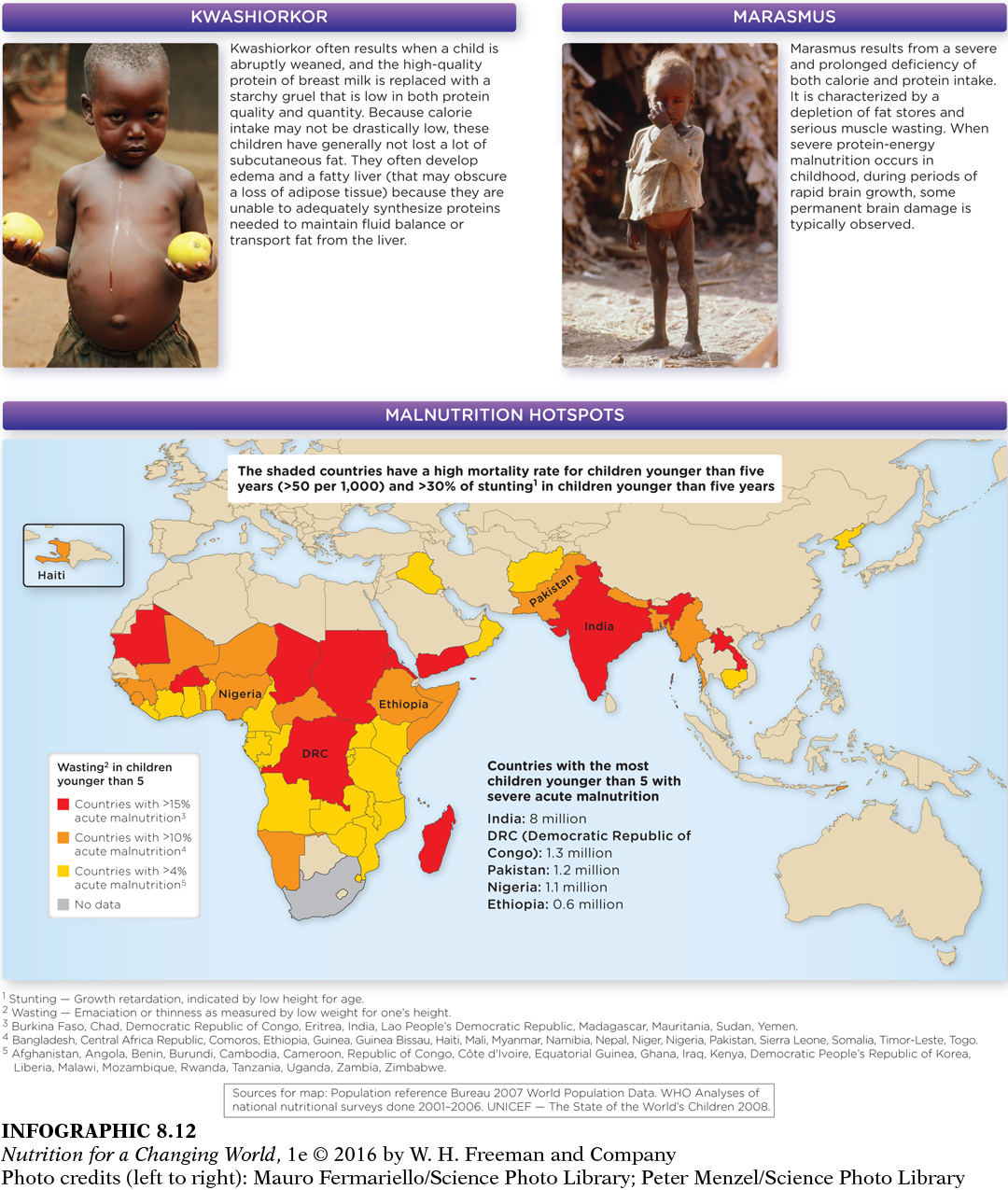PROTEIN-DEFICIENCY DISEASES
KWASHIORKOR a condition caused by an inadequate protein intake with reasonable caloric (energy) intake characterized by a swollen belly
MARASMUS a condition caused by inadequate intake of protein, calories, and overall nutrients characterized by emaciation (“skin and bones” appearance)
Even though most people get more protein than the RDA recommends, it’s possible to get too little. This prevents us from being able to synthesize the proteins we need to meet physiological demands, and this results in detrimental effects in body structure and function. In one type of protein deficiency, kwashiorkor, people don’t eat enough protein but they meet their energy needs, usually through carbohydrates. This is seen in the swollen bellies (from edema and a fatty liver) of children in developing countries who eat mostly grains, and who are often shorter, more prone to infections, and experience changes in hair color and flaky skin. The other type of deficiency, marasmus, occurs when people are deficient in most nutrients, including protein. They will waste to “skin and bones” and have little body fat. In malnutrition hotspots, the causes of protein malnutrition are a complex mixture of environmental, economic, social, and political factors. Poor weather such as drought, flooding, as well as hazards such as earthquakes and tsunamis can disrupt the food supply. Wars, political unrest, poverty, and the needs of refugees seeking safety can set off food emergencies.
178
In developed countries such as the United States, most protein deficiencies occur in alcoholics who swap food for alcohol, and in people with long-
179
